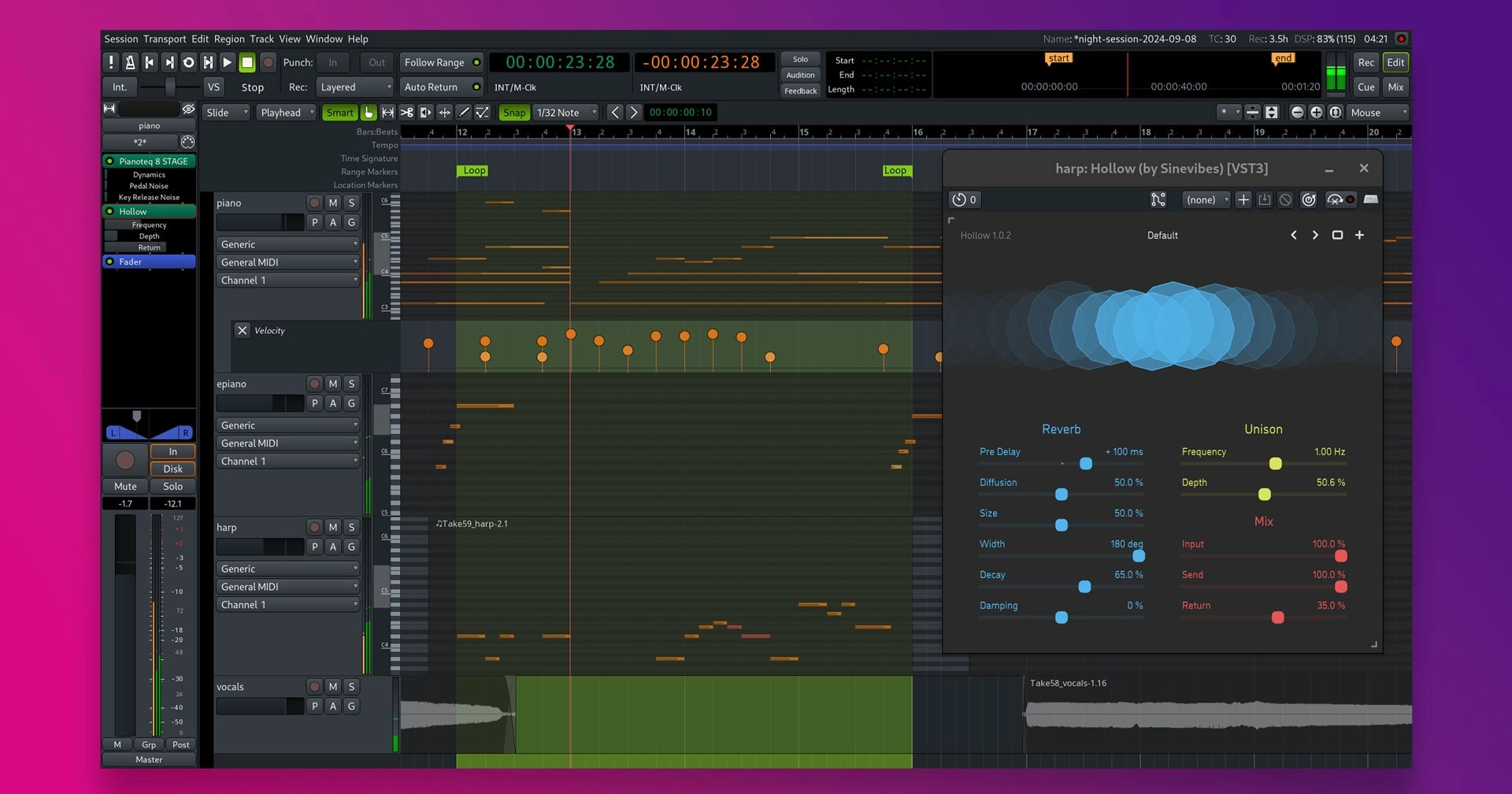Ardour stands as one of the most acclaimed and robust open-source digital audio workstations (DAW) available, and it has recently undergone a significant update.
While I can’t claim to be a prodigy in music production, my late teenage years were spent deeply exploring FL Studio (formerly known as Fruity Loops) in an attempt – albeit unsuccessful – to tap into my inner Cash Cash from the 2008 era, prior to their rise to fame.
With the release of Ardour 8.8, this marks the second update to the DAW within a two-week timeframe. The developers of the software mention that, “v8.7 was only released a couple of weeks ago, but it turned out to have a couple of major issues that required a hot-fix. Along the way, several other nice improvements happened.”
Here’s a brief summary of the updates made since Ardour 8.6, in case you missed the previous release of version 8.7 (which I did) as well as a few enhancements (in addition to the necessary hot fixes) that have been included in the latest Ardour 8.8 update:
- Tracks and busses can now be rearranged by dragging with the mouse in both editor and mixer views
- The rulers are now simplified to three types: locations, ranges, and arrangements
- Initial implementation of Parallelised disk I/O support
- New option to assign names to new MIDI tracks from SMF (using only the SMF track name)
- MIDI scene markers are now supported
- Introduction of the ‘Captain Light’ theme
- Improved theming option with ‘Boxy Buttons’
- Support added for querying disk space for disks exceeding 16 TB
- The “Clear” function for ranges now also eliminates punch and loop ranges
- The ‘New Session’ dialog box is now consistently centered
- “JACK” has been renamed to “JACK/Pipewire” on Linux systems
- Double-clicking on the mixer strip name button allows for renaming
- A Lua script has been added to select region(s) beneath the playhead
- A Lua plugin has been developed to map DM10-mkII Studio HiHat MIDI messages
In Ardour 8.8, control surfaces now support the latest Novation LaunchKey mk4 series, alongside many enhancements to existing devices, such as midnam files added for the Kong X50 and Kurzweil K2700, plus a MIDI binding map created for the Akai MPK mini mk3.
Numerous bug fixes, translation updates, and general refinements have been implemented to enhance the application’s performance across macOS, Windows, and Linux platforms.
Ardour is open-source software and can be downloaded from the Ardour website.
Nonetheless, the official pre-built binaries necessitate either a small one-time fee or an ongoing payment to support the software and its maintenance. The source code is available for free and can be compiled manually.
If you prefer not to deal with the hassle of compiling, you can obtain Ardour from Flathub. Alternatively, you can explore your distribution’s package repositories for an earlier version. For instance, Ubuntu 24.10 includes Ardour 8.6 in its repositories, whereas Ubuntu 24.04 LTS contains Ardour 8.4.
